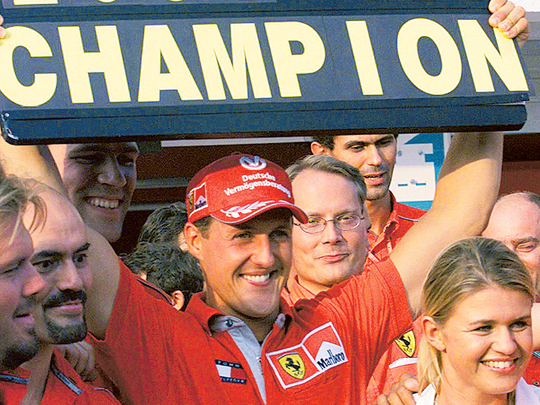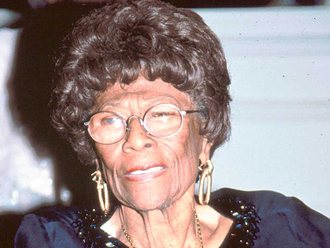
2001 — Michael Schumacher sealed his place among the greats of Formula One after winning his fourth world drivers’ crown by leading a Ferrari victory procession at the Hungarian Grand Prix. The German led from start to finish, with the exception of two pit stops, for a record-equalling 51st career victory. Brazilian team mate Rubens Barrichello was next home and the one-two finish ensured Ferrari their third constructors’ title in a row with four races to spare this season. Britain’s David Coulthard, whose title hopes had hung by the slimmest of threads, finished third for McLaren. The German 32-year-old was in tears on the victory podium as Todt hugged both his champagne drenched drivers. A delighted Schumacher — Ferrari’s first back-to-back title winner since the late Italian Alberto Ascari in 1953 — stood on his car to receive the acclamation of the crowd in the pits. He then hugged Barrichello while Coulthard doused him with water.
Other important events
1919 - Afghanistan declares independence from the UK.
1953 - Iran’s nationalist government collapses following a military coup.
1955 - Severe flooding in America’s north-east caused by Hurricane Diane claims 200 lives.
1966 - More than 500 people die in earthquake in eastern Turkey.
1974 - US Ambassador Rodger P. Davies is shot and killed at the US embassy in Nicosia, Cyprus.
1981 - The heads of state of Libya, Ethiopia and South Yemen sign a treaty of friendship and cooperation.
1982 - Svetlana Savitskaya becomes the second Russian woman to go to space when she is launched with two crewmates aboard a Soyuz T-7 spacecraft.
1988 - Hundreds of UN observers deploy along Iran-Iraq warfront on the eve of a ceasefire, the first step towards ending nearly eight years of bloodshed.
1989 - President Wojciech Jaruzelski proposes Solidarity editor Tadeusz Mazowiecki as Poland’s next Prime Minister after 45 years of Communist rule.
1991 - Communist hardliners stage coup against Soviet president Mikhail S. Gorbachev.
1994 - Chandrika Kumaratunga is sworn in as Sri Lanka’s Prime Minister.
1996 - Philippines President Fidel Valdez Ramos and a rebel leader announce a settlement of the 26-year Muslim secessionist rebellion.
2000 - Nine runaway train cars, six carrying liquefied gas, derail at a station south of Nairobi, igniting a fireball that kills 16 people.
2002 - Palestinian fighter Abu Nidal is found dead in his Baghdad home.
2003 - A massive car bomb destroys the UN headquarters in Baghdad, killing Sergio Vieira de Mello, the top UN envoy in Iraq, and at least 16 others.
2005 - Pierre Nkurunziza, a former Hutu rebel leader is elected Burundi’s president
2007 - Gaza’s main power plant is forced to shut down, causing a massive blackout.
2008 - Zambian President Levy Mwanawasa dies at the age of 59.
2009 - The world celebrates the inaugural World Humanitarian Day.
2013 - At least 28 people are killed when an Indian express train ploughs into a crowd of pilgrims crossing the tracks of a railway station in the eastern state of Bihar.








